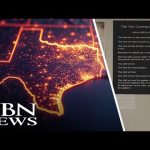Elon Musk stood on stage promising a futuristic, steering wheel-less, pedal-less Cybercab would enter production in April — a claim that sounds more like a marketing pitch than sober engineering planning. Forbes reports that despite the bold timetable and fanfare, Tesla has not even applied for the federal exemption it would need to legally sell a vehicle without traditional controls.
Federal safety rules require certain equipment on passenger vehicles, and the National Highway Traffic Safety Administration has made clear that any company seeking to operate a noncompliant vehicle on public roads must apply for and receive an exemption before selling or putting it into service. Regulators told reporters that Tesla has not submitted such an application, which means Musk’s April production boast collides directly with existing law.
This isn’t just a paperwork problem — it’s a safety question. NHTSA is already conducting extensive probes into Tesla’s so-called Full Self-Driving system after numerous crash reports, and rushing a noncompliant product onto the road would be reckless to customers and taxpayers alike. The agency’s insistence on exemptions reflects a sober, necessary barrier between Silicon hype and public safety.
History shows these exemptions are neither easy nor quick to secure: other companies like Zoox and Nuro have had to navigate long, difficult pathways to approval, and General Motors’ effort with the Cruise Origin stalled under regulatory pressure. If Tesla truly intends to ship a purpose-built robotaxi at scale, it must play by the rules — not expect regulatory bodies to rewrite safety standards on demand.
Meanwhile, shareholders just approved an extraordinary compensation package for Musk while the company touts a product it cannot legally sell without an exemption it hasn’t sought. Tesla’s chair has even hinted the Cybercab might need a steering wheel after all, which underscores the gap between Musk’s jaw-dropping promises and the practical limits of law and engineering. Americans deserve leaders and corporations who deliver on realistic plans, not spectacles that sidestep accountability.
Conservatives believe in the rule of law, market responsibility, and the protection of ordinary citizens from needless risk. If Tesla wants to revolutionize transportation, it should follow the legal process, prove its technology in the light of day, and stop leaning on billionaire bravado as a substitute for compliance and competence. Regulators should enforce standards; investors and consumers should demand tangible progress, not grandstanding.




